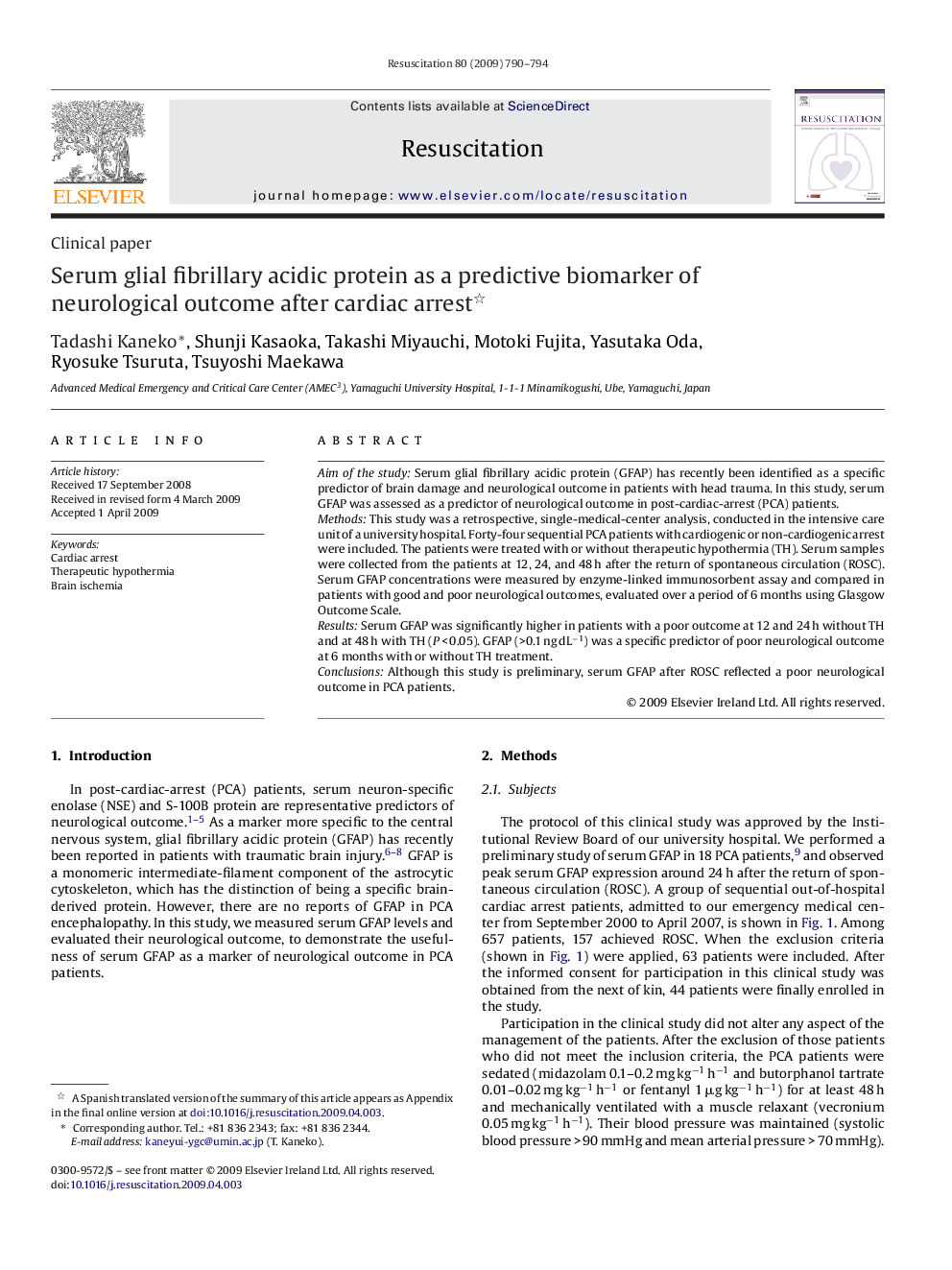| کد مقاله | کد نشریه | سال انتشار | مقاله انگلیسی | نسخه تمام متن |
|---|---|---|---|---|
| 3010392 | 1181512 | 2009 | 5 صفحه PDF | دانلود رایگان |

Aim of the studySerum glial fibrillary acidic protein (GFAP) has recently been identified as a specific predictor of brain damage and neurological outcome in patients with head trauma. In this study, serum GFAP was assessed as a predictor of neurological outcome in post-cardiac-arrest (PCA) patients.MethodsThis study was a retrospective, single-medical-center analysis, conducted in the intensive care unit of a university hospital. Forty-four sequential PCA patients with cardiogenic or non-cardiogenic arrest were included. The patients were treated with or without therapeutic hypothermia (TH). Serum samples were collected from the patients at 12, 24, and 48 h after the return of spontaneous circulation (ROSC). Serum GFAP concentrations were measured by enzyme-linked immunosorbent assay and compared in patients with good and poor neurological outcomes, evaluated over a period of 6 months using Glasgow Outcome Scale.ResultsSerum GFAP was significantly higher in patients with a poor outcome at 12 and 24 h without TH and at 48 h with TH (P < 0.05). GFAP (>0.1 ng dL−1) was a specific predictor of poor neurological outcome at 6 months with or without TH treatment.ConclusionsAlthough this study is preliminary, serum GFAP after ROSC reflected a poor neurological outcome in PCA patients.
Journal: Resuscitation - Volume 80, Issue 7, July 2009, Pages 790–794